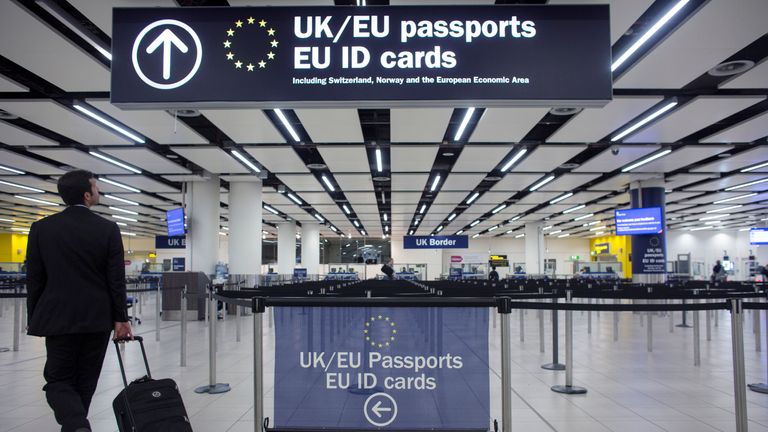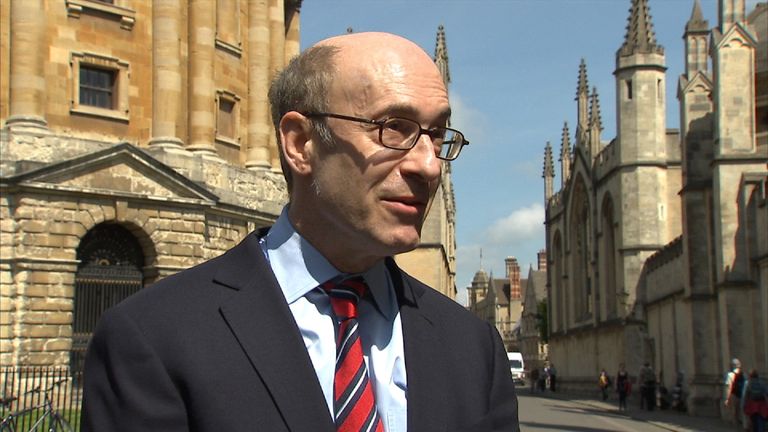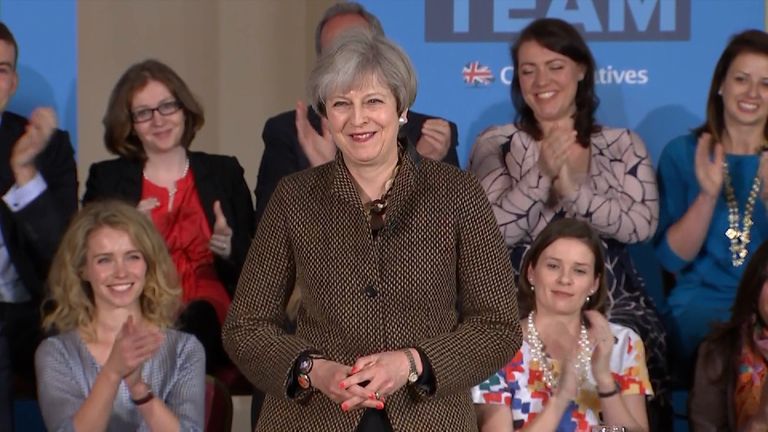Theresa May's planned immigration cut 'could damage economy'
A leading economist says the cut would cause "a marked drop in productivity", adding that UK taxes are likely to go up.
Wednesday 7 June 2017 14:31, UK
Theresa May's pledge to slash immigration could cause a fall in the country's national income and damage the economy, one of the world's leading economists has warned.
Ken Rogoff, a Harvard economist who was previously chief economist at the International Monetary Fund, said there are "limits to how much you can slam the brakes on immigration and get decent productivity and growth".
He added that whoever wins the election, taxes are likely to go up to pay for rising deficits and to address the gap between rich and poor.
His comments came after the Prime Minister set a five-year target to - even though she failed to hit that target for the six years she was in the Home Office.
Prof Rogoff said: "Immigration has fuelled UK growth, make no mistake about it, and if you slam the brakes and restrict it to family reunification you're going to see a marked drop in productivity."
The intervention will be seen as doubly significant because Prof Rogoff was a key influence to Mrs May's predecessor David Cameron and George Osborne.
Prof Rogoff said: "Every country has a right to govern its immigration and there's a balance - immigration helps businesses a lot, it helps the immigrants a lot but it doesn't necessarily help everyone, and you need to have other policies to balance that.
"And if you don't it's not surprising there's a lot of popular dissatisfaction.
"So I think all the parties are trying to move towards a different balance on things."
He added: "You're going through the trauma of Brexit, there's also been this huge shift in the income, the middle income losing out to higher income, there have to be some changes.
"There probably need to be tax hikes at some point in the UK, whether the parties admit it or not."
UK net migration has been continuously above 100,000 - the ceiling Mrs May has reconfirmed in her manifesto - since 1998.
The majority of this is from migration from outside the EU, which the UK has more control of than EU migration.
Mrs May has said that when Britain leaves the EU it will be able to meet the target, since it will no longer have to obey EU freedom of movement obligations.







